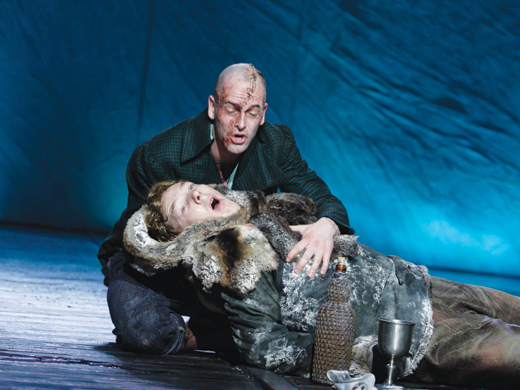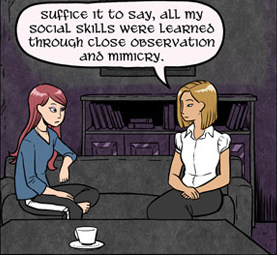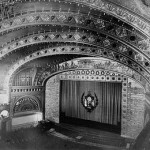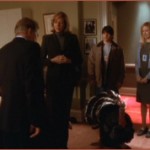As I warned you, I’m taking some time before I write anything specifically about being received into the Catholic Church. In the meantime, I hope my thoughts on the National Theatre’s production of Frankenstein will do. After all, it’s also about the surprise of becoming a new creation
England’s National Theatre tapes some of its performances and allows them to be shown around the world. This past summer, I was lucky enough to see their production of Frankenstein twice through this program (one evening Benedict Cumberbatch played Frankenstein, and one evening he played the monster).
Mary Shelley’s Frankenstein is such a classic that there were moments that I felt frustrated with how hackneyed the play seemed to be. It’s hard to stage a trope namer without straying into camp or irony. And one part of the story felt terribly worn out, until I’d seen it twice.
As directed by Danny Boyle (who also managed the gonzo opening ceremonies for the London Olympics), Frankenstein is emotionally stunted. When he meets his monster, he mostly marvels at himself; every beauty in the monster is the result of his art, no credit accrues to the individual standing before him. He pushes aside his fiancée for his work and recovers from the death of his brother by becoming more clipped and fixated on hiding what he has made. When the creature confronts Frankenstein’s wife, it’s not surprising that there’s more warmth and charity in that encounter (well, before it turns violent) than in any scene Frankenstein has shared with her.
So, I was rolling my eyes a little in my seat. A story about how a person is divorced from their own humanity, but finds an unexpected tutor in the person assumed to be inhuman who turns out to excel him in charity? Together, they fight crime! But, then, something the creature said while pleading for a mate, brought me up short on the second viewing.
Frankenstein asks what the creature would do with a wife. “I would cherish her!” the creature blurts out. Even in his ugliness, the creature assumed his fervent worship would compel love. I was reminded of the relentless, grotesque love of Fosca from Passion.
The creature turns his attentions to his creator after his hopes of a companion of his own kind are destroyed. If they’re both unfit for the company of the rest of the world, perhaps they should be brothers. Frankenstein weeps and seems to have an epiphany, finally understanding the dignity and beauty of companionship. But if we don’t grant his conversion as positive, it becomes more tragic and less cliché.
Like us, Frankenstein knows the story of the Unexpected Tutor, and he’s relieved to finally find and accept his role in it. But the creature isn’t up to the role Frankenstein and our pattern-matching brains are casting him in. The ultimate proof of Frankenstein’s brokenness is that he mistakes differently broken for whole. A victim of Dunning-Kruger, Frankenstein doesn’t know enough about his deficiency to be able to find a physician.
What came to mind, watching Frankenstein, wretched, experience the relief of his false epiphany was the words from Isaiah 55:2, “Why spend money on what is not bread, and your labor on what does not satisfy?” Or Aaron Sorkin’s gloss on this sentiment in The American President:
People want leadership, Mr. President, and in the absence of genuine leadership, they’ll listen to anyone who steps up to the microphone. They want leadership. They’re so thirsty for it they’ll crawl through the desert toward a mirage, and when they discover there’s no water, they’ll drink the sand.














